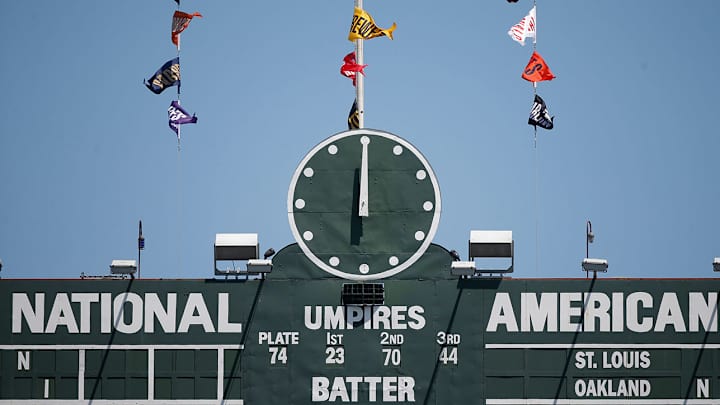How Should MLB Experiment in a Shortened Season?

Despite reports this week about the possibility of baseball in May, we don't know if there will be any games in 2020. We just don't. What we do know is that if there is a 2020 season, it won't be of the length we're used to.
A shorter season may nudge MLB to be more open-minded to changes surrounding the conventions of the game we're used to, from roster size to playoff format to ... innings in a game. The length of season will dictate just how experimental the league is willing to be, but some change feels inevitable.
How would you like to see Major League Baseball experiment?
Stephanie Apstein
Unfortunately, the biggest change I'd like to see to with MLB isn't feasible coming off an extended offseason: an 11-man cap on pitchers. The league tried to get at this with a limit of 13 and a three-batter minimum, but the easiest way to fix what ails baseball is to keep teams from stocking their rosters with flamethrowers. If you have to pitch more often, you can't throw as hard. But pitchers are already at major risk from injury after the fits and starts of training this spring, so that's out.
I like the idea of long series. There's nothing sacred about three games, and it would cut down on travel (and on carbon emissions) if teams played one another for a full week. They would also be unable to set up their rotation in a way that hid pitchers from their opponents, and there would be a lot of possibilities for drama as teams got tired of each other.
Emma Baccellieri
I think a shortened season would give us plenty that's interesting on its own—no worrying about strict workload limits for young players, greater flexibility in managing a pitching staff, etc. But for some direct experimentation, I'd love to see a different postseason structure. What about some version of the system used by KBO in Korea, where the top-ranked team in each league could get a bye until the LCS, and lower-ranked teams would play each other in series of varying length to climb the ladder? It would guarantee that the regular season, even if it has to be shorter than usual, would still be crucially important.
Connor Grossman
Time to crank up the dial. If the regular season is anything less than 100 games, let's scrap the World Series. Instead we'll play for the 2020 Championship, with MLB donating a lump sum to the winning team's charity that can benefit coronavirus relief.
The 2020 postseason should resemble the NCAA tournament, comprised of do-or-die games and be more inclusive than exclusive. Get all 30 teams involved. Give an advantage to the better teams, but not too much. After all, a year from now we'll be talking about the 2020 Champion Miami Marlins.
P.S. Can we get rid of replay, too? Thanks.
Matt Martell
On the more extreme side of experimentation, we could have a 56-game regular season. That would allow every team to play a four-game series against the other 14 teams in their specific league.
Regular season standings would then be used for seeding, 1-15, for each league's postseason. The top four seeds get byes. The worst four teams have to win two do-or-die games to advance to the next round. So No. 12 plays 15, 13 plays 14, and then the winners of each game play, with the winner moving on to face the No. 5 seed in a best-of-three series (No. 6 would play 11, 7 vs. 10, 8 vs. 9).
The winners of each best-of-three series would advance to the first best-of-five round, with the first seed playing the worst remaining seed (No. 2 vs. next worst remaining seed, etc.). Next is the second best-of-five round, with the winners of each series moving on to the championship series, normal CS format, followed by the World Series. This would surely get people talking about baseball.
Michael Shapiro
I think the current coronavirus hiatus is a perfect time for MLB to experiment with a slate of potential changes, and the seven-inning game is perhaps the most appealing. Not as the new standard, but once or twice a week could be a welcome break from the season's monotony.
Sunday games feel ripe for such an experiment, as do Monday matchups in four-game series. Bullpens are burned far too often at the end of a series, especially when a No. 4 or No. 5 starter toes the rubber on a Sunday. Perhaps baseball can pull off seven-inning doubleheaders in certain situations as well. Regardless, bring in the changes. The next decade of baseball could be thrilling if Rob Manfred and Co. open their minds.
